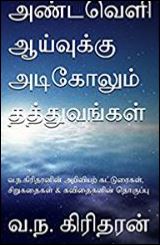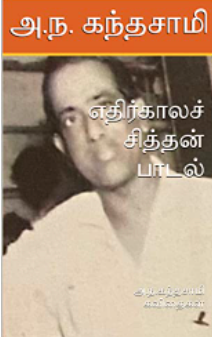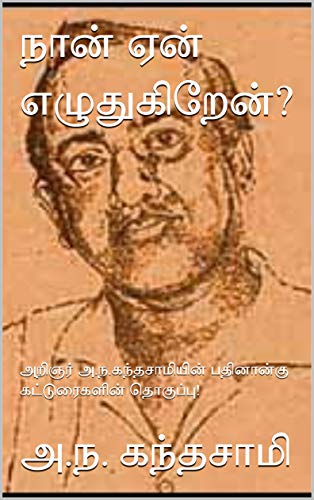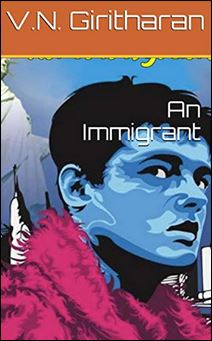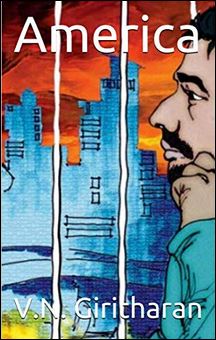Anti-Muslim violence rears its ugly head again in Sri Lanka By Dr Lionel Bopage President Australian Advocacy for Good Governance in Sri Lanka
 Anti-Muslim violence rears its ugly head again in Sri Lanka
Anti-Muslim violence rears its ugly head again in Sri Lanka
- Australian Advocacy for Good Governance in Sri Lanka Inc. Committee: Wimal Jayakody, Viraj Dissanayake, Sithy Marikkar, Siraj Perera, Shyamon Jayasinghe, Sarath Jayasuriya, Sarath Bandara, Saliya Galappaththi, Ranjith Weerasinghe, Prasad Mohotti, Nalliah Suriyakumaran, Lionel Bopage, Larry Marshal, Lal Perera, Jude Perera, Cyril Gunarathne, Chitra Bopage, Athula Pathinayake, Asoka Athuraliya, Ari Pitipana, Anura Manchanayake, Antony Gratian, Ajith Rajapakse -
Anti-Muslim violence rears its ugly head again in Sri Lanka Inciting violence, hatred and threats against other citizens because of their diverse backgrounds is harmful for sustained peace and reconciliation in Sri Lanka. Ridiculing their religious beliefs and destroying their properties is terrifying for the targeted groups and distressing for the law abiding community members. A free nation shows its maturity by allowing minorities to enjoy the same rights and privileges the rest of the community is entitled to.
In June 1980, Sri Lanka acceded to the International Covenant on Civil and Political Rights (ICCPR), and it came into force in September 1980. Article 17 of the ICCPR provides that “No person shall be subjected to arbitrary or unlawful interference with his privacy, family, home or correspondence, nor to unlawful attacks on his honour and reputation”, and “Everyone has the right to the protection of the law against such interference or attacks”. Article 20(2) states that "any advocacy of national, racial or religious hatred that constitutes incitement to discrimination, hostility or violence shall be prohibited by law". However, in practice, legislative measures have done little to address or deter the reasons for such unacceptable forms of behaviour. The international experience indicates that racial hatred legislation is not the answer to curb these situations. The use of community education in schools and local communities and mass public education campaigns better serve such purpose.

 இலங்கையின் சுதந்திர தினநாளன்று இலண்டனிலுள்ள இலங்கைத்தூதுவராலயத்தில் நடைபெற்ற விவகாரமானது தமிழ் ,சிங்கள அரசியல்வாதிகளுக்கு மெல்லக் கிடைத்த அவலாகியுள்ளது. பிரிகேடியர் பிரியங்க பெர்னாண்டோவின் கழுத்தை வெட்டும் சைகை தற்போதுள்ள சூழலில் , யுத்தத்திற்குப் பின்னரான சூழலில் தேவையற்றதொன்று. அவரது செய்கையினை நாட்டில் நல்லெண்ணத்தை ஏற்படுத்துவதற்காகப் பதவிக்கு வந்த இலங்கை ஜனாதிபதி மைத்திரி சிறிசேனாவின் அரசில் அங்கம் வகிக்கும் பாதுகாப்பு ராஜாங்க அமைச்சர் ருவான் விஜேவர்த்தனா வரவேற்றுப் பாராட்டிப் பேசினார். இலங்கை வெளிவிவகார அமைச்சு உடனடியாக அவரைப் பதவியிலிருந்து நிறுத்தி விசாரணையை ஆரம்பித்தது. ஆனால் தென்னிலங்கையில் அரசியல்வாதிகளால் இச்சம்பவம் இனரீதியாக ஊதிப்பெருப்பிக்கப்பட்டதை அடுத்து , அதற்கு அடிபணிந்த ஜனாதிபதி மைத்திரி சிறிசேன அதனை இடை நிறுத்தி அவரை மீண்டும் பதவியில் அமர்த்தினார். இதன் மூலம் அவர் நாட்டின் ஒரினத்துக்குச் சார்பாகச் செயற்படும் ஜனாதிபதியாகவே தென்படுவார். இணக்க அரசியல் பேசும் தமிழர் விடுதலைக் கூட்டமைப்பின் தலைவர் சம்பந்தனையும் இப்பிரச்சினை விட்டு வைக்கவில்லை. அவரும் சூழலுக்கு அடிபணிந்து உடனடியாகப் பிரிகேடியரை நாட்டுக்குத் திருப்பி அழைக்குமாறு கோரியிருக்கின்றார். இதற்கிடையில் இப்பிரச்சினை பூதாகாரமாக வெளிப்பட்ட நிலையில் தமிழர்கள் மத்தியிலுள்ள புலம்பெயர் அரசியல்வாதிகளும், தென்னிலங்கை அரசியல்வாதிகளைப்போல் இதனைத் தம் அரசியல் நலன்களுக்காகப் பாவிக்கத்தொடங்கினர்.
இலங்கையின் சுதந்திர தினநாளன்று இலண்டனிலுள்ள இலங்கைத்தூதுவராலயத்தில் நடைபெற்ற விவகாரமானது தமிழ் ,சிங்கள அரசியல்வாதிகளுக்கு மெல்லக் கிடைத்த அவலாகியுள்ளது. பிரிகேடியர் பிரியங்க பெர்னாண்டோவின் கழுத்தை வெட்டும் சைகை தற்போதுள்ள சூழலில் , யுத்தத்திற்குப் பின்னரான சூழலில் தேவையற்றதொன்று. அவரது செய்கையினை நாட்டில் நல்லெண்ணத்தை ஏற்படுத்துவதற்காகப் பதவிக்கு வந்த இலங்கை ஜனாதிபதி மைத்திரி சிறிசேனாவின் அரசில் அங்கம் வகிக்கும் பாதுகாப்பு ராஜாங்க அமைச்சர் ருவான் விஜேவர்த்தனா வரவேற்றுப் பாராட்டிப் பேசினார். இலங்கை வெளிவிவகார அமைச்சு உடனடியாக அவரைப் பதவியிலிருந்து நிறுத்தி விசாரணையை ஆரம்பித்தது. ஆனால் தென்னிலங்கையில் அரசியல்வாதிகளால் இச்சம்பவம் இனரீதியாக ஊதிப்பெருப்பிக்கப்பட்டதை அடுத்து , அதற்கு அடிபணிந்த ஜனாதிபதி மைத்திரி சிறிசேன அதனை இடை நிறுத்தி அவரை மீண்டும் பதவியில் அமர்த்தினார். இதன் மூலம் அவர் நாட்டின் ஒரினத்துக்குச் சார்பாகச் செயற்படும் ஜனாதிபதியாகவே தென்படுவார். இணக்க அரசியல் பேசும் தமிழர் விடுதலைக் கூட்டமைப்பின் தலைவர் சம்பந்தனையும் இப்பிரச்சினை விட்டு வைக்கவில்லை. அவரும் சூழலுக்கு அடிபணிந்து உடனடியாகப் பிரிகேடியரை நாட்டுக்குத் திருப்பி அழைக்குமாறு கோரியிருக்கின்றார். இதற்கிடையில் இப்பிரச்சினை பூதாகாரமாக வெளிப்பட்ட நிலையில் தமிழர்கள் மத்தியிலுள்ள புலம்பெயர் அரசியல்வாதிகளும், தென்னிலங்கை அரசியல்வாதிகளைப்போல் இதனைத் தம் அரசியல் நலன்களுக்காகப் பாவிக்கத்தொடங்கினர்.  - சிங்கள எழுத்தாளரும், ஊடகவியலாளரும், லக்பிம நியூஸ் பேப்பர்ஸ் லிமிட்டெட் (Lakbima Newspapers ) நிறுவனத்தில் பணிபுரிபவரும் , கொழும்புப் பல்கலைக்கழக விஞ்ஞானபீடப் பட்டதாரியுமான கத்யானா அமரசிங்ஹ (Kathyana Amarasinghe) தனது யாழ்ப்பாண விஜயத்தின்போது அங்குள்ள மக்கள் மொழி காரணமாக எதிர்கொள்ளும் பிரச்சினைகளை வெளிப்படுத்தி கட்டுரையொன்றினை எழுதியுள்ளார். மிகவும் பயனுள்ள கட்டுரை. இது போன்ற கட்டுரைகள் சிங்கள மக்கள் மத்தியில் தமிழ் மக்கள் அன்றாடம் அனுபவிக்கும் பிரச்சினைகளை வெளிப்படுத்துவதால், புரிந்துணர்வுக்கு வழி வகுப்பதுடன் , பிரச்சினைகளின் பக்கம் அரசியல்வாதிகளின் கவனத்தையும் திருப்பும் சாத்தியமுண்டென்பதால் வரவேற்கத்தக்கவை. கட்டுரையினைப் பெற்று 'பதிவுகள்' இணைய இதழுக்கு அனுப்பிய நண்பர் ஜெயக்குமாரனுக்கு (ஜெயன்) நன்றி. -
- சிங்கள எழுத்தாளரும், ஊடகவியலாளரும், லக்பிம நியூஸ் பேப்பர்ஸ் லிமிட்டெட் (Lakbima Newspapers ) நிறுவனத்தில் பணிபுரிபவரும் , கொழும்புப் பல்கலைக்கழக விஞ்ஞானபீடப் பட்டதாரியுமான கத்யானா அமரசிங்ஹ (Kathyana Amarasinghe) தனது யாழ்ப்பாண விஜயத்தின்போது அங்குள்ள மக்கள் மொழி காரணமாக எதிர்கொள்ளும் பிரச்சினைகளை வெளிப்படுத்தி கட்டுரையொன்றினை எழுதியுள்ளார். மிகவும் பயனுள்ள கட்டுரை. இது போன்ற கட்டுரைகள் சிங்கள மக்கள் மத்தியில் தமிழ் மக்கள் அன்றாடம் அனுபவிக்கும் பிரச்சினைகளை வெளிப்படுத்துவதால், புரிந்துணர்வுக்கு வழி வகுப்பதுடன் , பிரச்சினைகளின் பக்கம் அரசியல்வாதிகளின் கவனத்தையும் திருப்பும் சாத்தியமுண்டென்பதால் வரவேற்கத்தக்கவை. கட்டுரையினைப் பெற்று 'பதிவுகள்' இணைய இதழுக்கு அனுப்பிய நண்பர் ஜெயக்குமாரனுக்கு (ஜெயன்) நன்றி. - வருடமொன்று கடந்து செல்லுது. வாழ்க்கை தானே விரைந்து போகுது. வருவது வருவதும் செல்வது செல்வதும் யாரின் அனுமதி கேட்காமலும் தானே இயங்கிக் கொண்டு போகிறது. ஒவ்வொரு வருடமும் ஒவ்வொருவருக்கும் வாழ்வில் பல நிகழ்வுகளுக்குக் காரணமாகின்றன. அது சிலரின் வாழ்வில் மகிழ்ச்சிகரமானதாகவும், சிலரின் வாழ்வில் துயரமிக்கதாகவும் அமைந்து விடுகிறது. அவ்வகையில் கடந்து செல்லும் இந்த 2017 எதை எதை விட்டுச் செல்கிறது என்பதை இந்தச் சாமான்யனின் பார்வையில் மீட்டுப் பார்க்கிறேன். எனது மீள்பார்வை கொஞ்சம் சத்தமாக உங்கள் முன்றலிலும் விழுகிறது.
வருடமொன்று கடந்து செல்லுது. வாழ்க்கை தானே விரைந்து போகுது. வருவது வருவதும் செல்வது செல்வதும் யாரின் அனுமதி கேட்காமலும் தானே இயங்கிக் கொண்டு போகிறது. ஒவ்வொரு வருடமும் ஒவ்வொருவருக்கும் வாழ்வில் பல நிகழ்வுகளுக்குக் காரணமாகின்றன. அது சிலரின் வாழ்வில் மகிழ்ச்சிகரமானதாகவும், சிலரின் வாழ்வில் துயரமிக்கதாகவும் அமைந்து விடுகிறது. அவ்வகையில் கடந்து செல்லும் இந்த 2017 எதை எதை விட்டுச் செல்கிறது என்பதை இந்தச் சாமான்யனின் பார்வையில் மீட்டுப் பார்க்கிறேன். எனது மீள்பார்வை கொஞ்சம் சத்தமாக உங்கள் முன்றலிலும் விழுகிறது.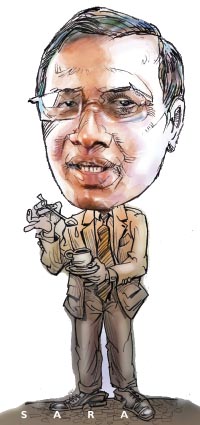 "கூட்டமைப்பில் உள்ளவர்களில் தமிழரசு கட்சியை தவிர ஏனையவர்கள் ஆயுத குழுக்களில் இருந்து வந்தவர்கள் என தமிழ் தேசிய கூட்டமைப்பின் பாராளுமன்ற உறுப்பினர் எம்.ஏ. சுமந்திரன் சுட்டிக்காட்டியுள்ளார்" என்ற செய்தி பற்றி முகநூலில் வாதப்பிரதிவாதங்கள் செல்வதை அவதானித்தேன். அது பற்றிய என் நோக்கு இது:
"கூட்டமைப்பில் உள்ளவர்களில் தமிழரசு கட்சியை தவிர ஏனையவர்கள் ஆயுத குழுக்களில் இருந்து வந்தவர்கள் என தமிழ் தேசிய கூட்டமைப்பின் பாராளுமன்ற உறுப்பினர் எம்.ஏ. சுமந்திரன் சுட்டிக்காட்டியுள்ளார்" என்ற செய்தி பற்றி முகநூலில் வாதப்பிரதிவாதங்கள் செல்வதை அவதானித்தேன். அது பற்றிய என் நோக்கு இது: - எழுத்தாளர் கருணாகரன் தனது முகநூற் பதிவொன்றில் இலங்கைத்தமிழர்களின் விடுதலைப்போராட்டத்தில் தம்மை அர்ப்பணித்த அனைவருக்கும் அஞ்சலி செய்வது பற்றிய தமது கருத்தினைப் பகிர்ந்திருந்தார். தற்போதுள்ள சூழலில் மிகவும் பயனுள்ள கருத்து என்பதால் `பதிவுகள் வாசகர்களுடன் பகிர்ந்துகொள்கின்றோம். நீங்களும் படித்துப்பாருங்கள்.- பதிவுகள் -
- எழுத்தாளர் கருணாகரன் தனது முகநூற் பதிவொன்றில் இலங்கைத்தமிழர்களின் விடுதலைப்போராட்டத்தில் தம்மை அர்ப்பணித்த அனைவருக்கும் அஞ்சலி செய்வது பற்றிய தமது கருத்தினைப் பகிர்ந்திருந்தார். தற்போதுள்ள சூழலில் மிகவும் பயனுள்ள கருத்து என்பதால் `பதிவுகள் வாசகர்களுடன் பகிர்ந்துகொள்கின்றோம். நீங்களும் படித்துப்பாருங்கள்.- பதிவுகள் - - கார்த்திகேசன் 'மாஸ்ட்டர்' அவர்களின் நினைவாக வெளிவந்த நூலில் எழுத்தாளர் நீர்வை பொன்னையன் எழுதிய இக்கட்டுரை கார்த்திகேசன் 'மாஸ்ட்டர்' அவர்களின் ஆளுமையை , அவர் ஏன் இலங்கை முற்போக்கு எழுத்தாளர்களின் ஆதர்ச மனிதராக விளங்கினார் என்பதை நன்கு பிரதிபலிக்கும் கட்டுரை. இலங்கையில் குறிப்பாக யாழ்ப்பாணத்தில் அவரது சமூக, அரசியற் செயற்பாட்டினை நன்கு விளக்குமொரு கட்டுரை. இதனையும் கூடவே அவரது புகைப்படத்தையும் எம்முடன் பகிர்ந்துகொண்ட அவரது புதல்வி ஜானகி பாலகிருஷ்ணனுக்கு நன்றி. - பதிவுகள் -
- கார்த்திகேசன் 'மாஸ்ட்டர்' அவர்களின் நினைவாக வெளிவந்த நூலில் எழுத்தாளர் நீர்வை பொன்னையன் எழுதிய இக்கட்டுரை கார்த்திகேசன் 'மாஸ்ட்டர்' அவர்களின் ஆளுமையை , அவர் ஏன் இலங்கை முற்போக்கு எழுத்தாளர்களின் ஆதர்ச மனிதராக விளங்கினார் என்பதை நன்கு பிரதிபலிக்கும் கட்டுரை. இலங்கையில் குறிப்பாக யாழ்ப்பாணத்தில் அவரது சமூக, அரசியற் செயற்பாட்டினை நன்கு விளக்குமொரு கட்டுரை. இதனையும் கூடவே அவரது புகைப்படத்தையும் எம்முடன் பகிர்ந்துகொண்ட அவரது புதல்வி ஜானகி பாலகிருஷ்ணனுக்கு நன்றி. - பதிவுகள் -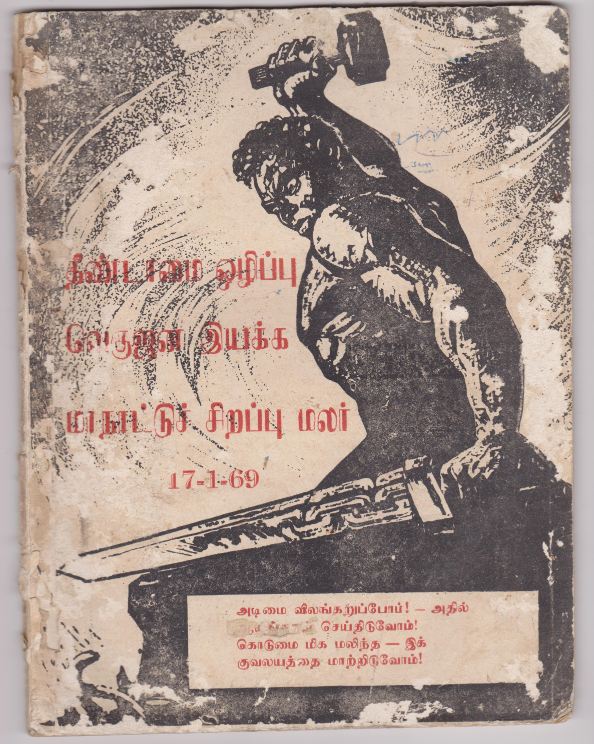 தீண்டாமைக்கு எதிரான போராட்ட இயக்கத்தை ஆரம்பிக்கும் வகையில் 1966 -ம் ஆண்டு இலங்கை கம்யூனிஸ்ட் கட்சி (அன்று சீனச் சார்பு என அழைக்கப்பட்டது) ஓர் ஊர்வலத்தையும் பொதுக்கூட்டத்தையும் வடபிரதேசத்தில் நடாத்துவதென தீர்மானித்தது.
தீண்டாமைக்கு எதிரான போராட்ட இயக்கத்தை ஆரம்பிக்கும் வகையில் 1966 -ம் ஆண்டு இலங்கை கம்யூனிஸ்ட் கட்சி (அன்று சீனச் சார்பு என அழைக்கப்பட்டது) ஓர் ஊர்வலத்தையும் பொதுக்கூட்டத்தையும் வடபிரதேசத்தில் நடாத்துவதென தீர்மானித்தது.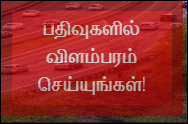
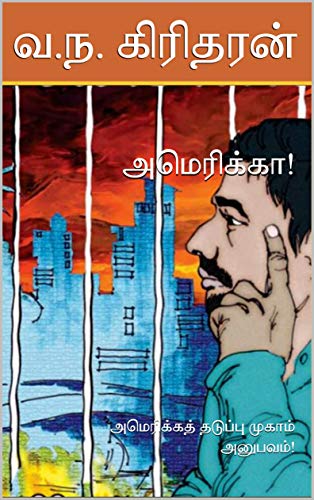
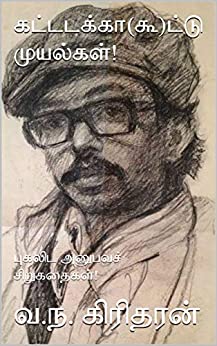
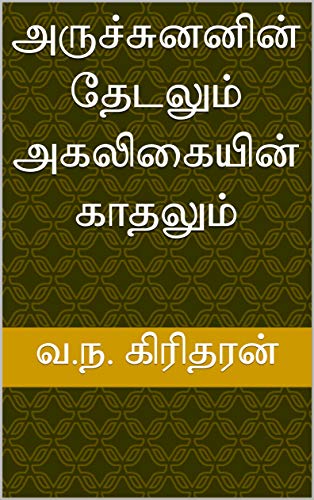


 '
' பதிவுகள். காம் மின்னூல் தொகுப்புகள்
பதிவுகள். காம் மின்னூல் தொகுப்புகள் 





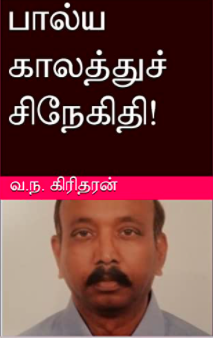






 எழுத்தாளர் வ.ந.கிரிதரனின் 'குடிவரவாளன்' நாவலினை கிண்டில் பதிப்பு மின்னூலாக வடிவத்தில் வாங்க விரும்புபவர்கள் கீழுள்ள இணைய இணைப்பில் வாங்கிக்கொள்ளலாம். விலை $6.99 USD.
எழுத்தாளர் வ.ந.கிரிதரனின் 'குடிவரவாளன்' நாவலினை கிண்டில் பதிப்பு மின்னூலாக வடிவத்தில் வாங்க விரும்புபவர்கள் கீழுள்ள இணைய இணைப்பில் வாங்கிக்கொள்ளலாம். விலை $6.99 USD. 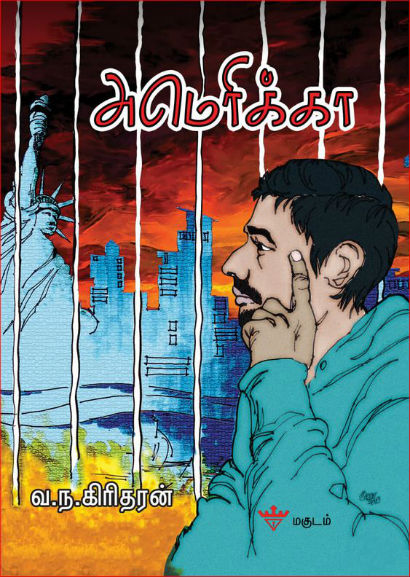
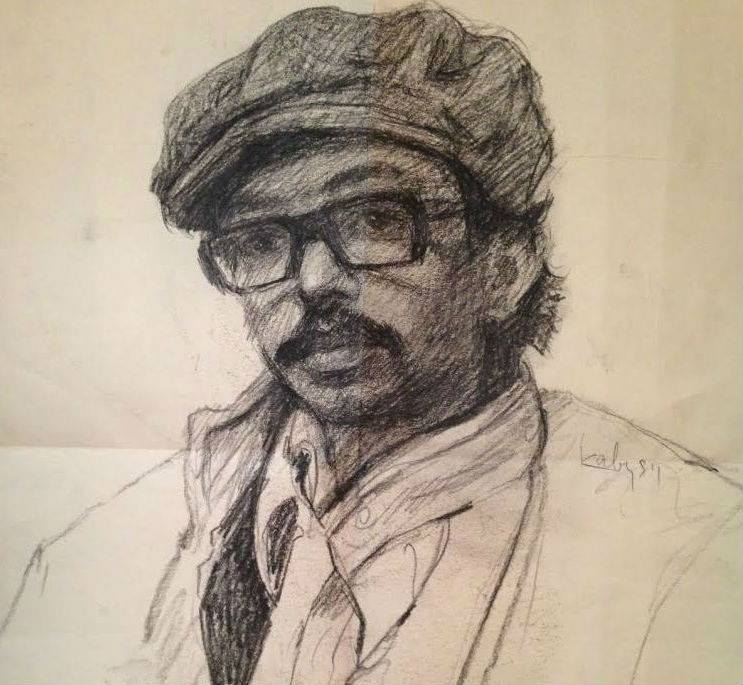 ' வ.ந.கிரிதரன் பக்கம்'என்னும் இவ்வலைப்பதிவில் அவரது படைப்புகளை நீங்கள்
' வ.ந.கிரிதரன் பக்கம்'என்னும் இவ்வலைப்பதிவில் அவரது படைப்புகளை நீங்கள் 
